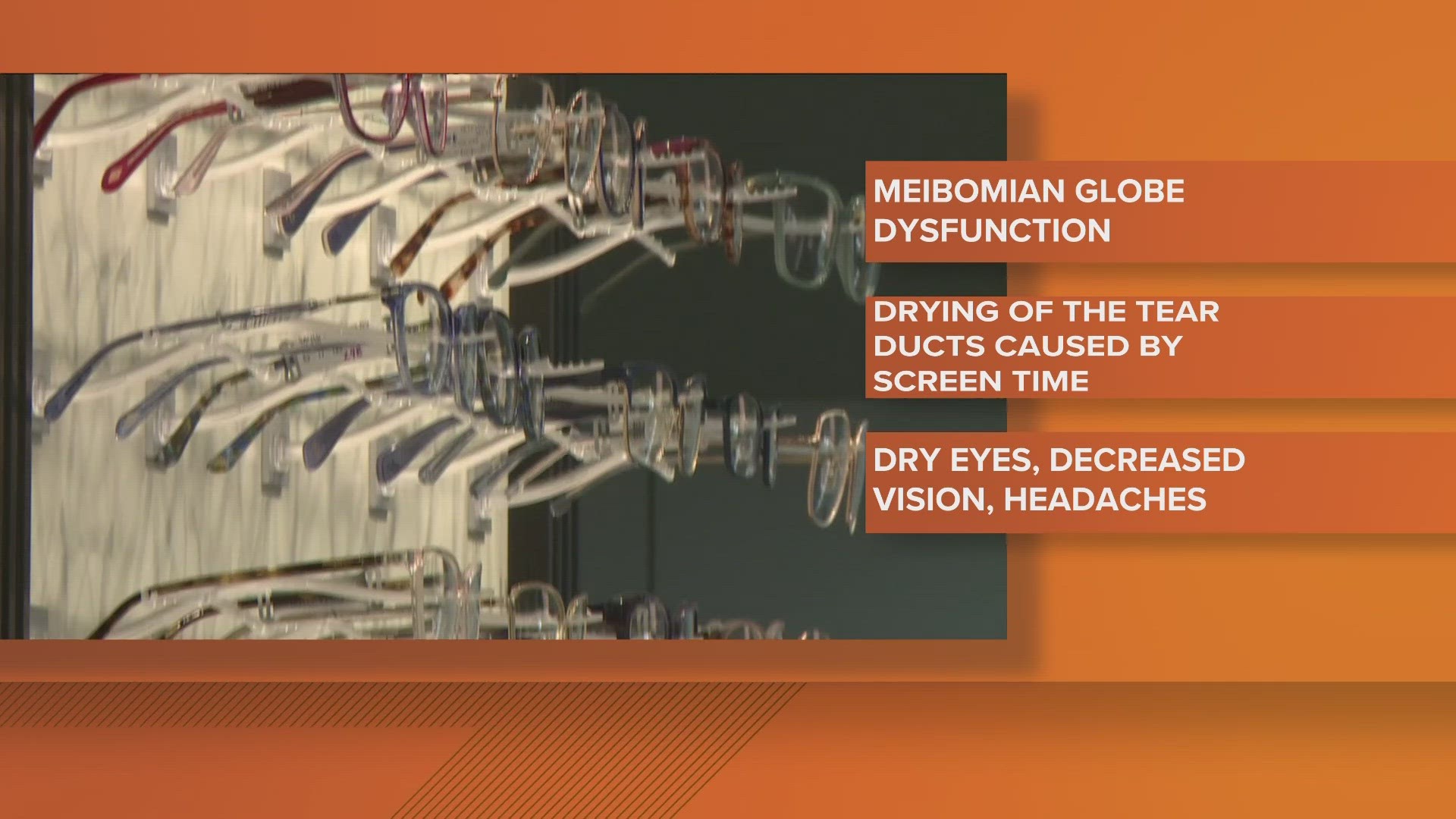GREENSBORO, N.C. — Excessive screen time is impacting our eyes, especially in kids.
The World Health Organization (WHO) reports that by 2050, more than half of the world's population will be nearsighted.
In that report, WHO states that there are a few reasons behind this.
One reason is there is an increased amount of time spent indoors and increased "near work" activities.
Screens play a role in this because they are held so close to our eyes. With kids using screens more often than ever before, there's a higher risk for eye conditions, like Meibomian Gland Dysfunction (MGD).
Peter Dunn and his daughter, Taylor Dunn, are eye doctors at Dunn Family Eye Care. They say MGD is becoming more prevalent in children because they are now examining children for it after recent studies.
"Meibomian Gland Dysfunction, or MGD, is a chronic inflammatory condition along the mid lash margin, where the glands come out and with time those can get plugged up because of this inflammation, the secretions thicken and then it plugs the glands, and when the glands aren't working, your tear film is disrupted, causing dry eye," said Peter Dunn.
Simply put, there's an added strain on your eye to see things up close, which can cause the glands that keep your eyes wet to get clogged and cause the cells to degenerate.
Once the glands are damaged, there is no way to recover them, but just ways to manage it.
Some side effects are dry eyes, vision blur, and headaches.
The Dunn's suggest increased outdoor time can reduce this risk, get eye drops, massage your eyelids at night with a hot washcloth, and follow the 20-20-20 rule.
That rule is where, after 20 minutes of using a screen, look 20 feet away for 20 seconds.
Doctor Taylor Dunn said adding a blue light film to your prescription glasses, or using blue light glasses when using a screen, can help.
She said even if you don't experience the symptoms, it's important to come in every year to get your eyes checked.
"Even if you aren't feeling too much strain or fatigue on the computer, it's always important to get your eyes, checked to come on in and make sure that you don't actually need a pair of glasses, to help with any perceived headache that you might not realize are related to your eyes and of course your ocular health as well," said Taylor Dunn.
For the kids, it's suggested by doctors to try as best you can to reduce their screen time and get them outdoors.

